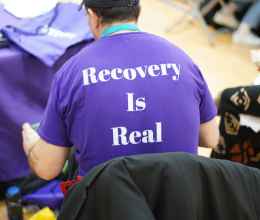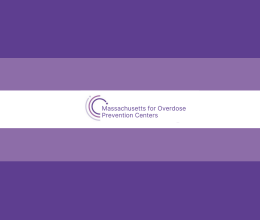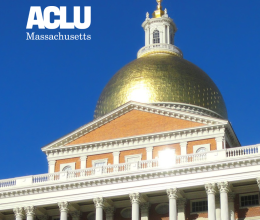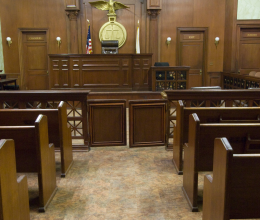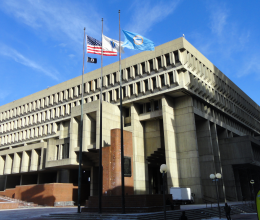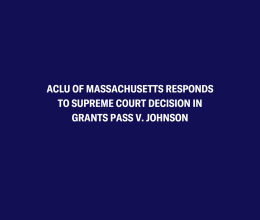
A Suffolk County Superior Court judge today declined to issue a temporary restraining order that would have halted the City of Boston’s forcible displacement of people experiencing homelessness in the “Mass. and Cass” area until there is an individualized system in place to ensure that there is actually housing available to people being displaced. Another hearing is set for November 29 in the Superior Court.
The ACLU of Massachusetts and law firm WilmerHale filed the lawsuit earlier this month, seeking to stop the City of Boston from continuing to drive people out of the “Mass. and Cass” area without first identifying viable alternative housing options for them. The lawsuit, filed on behalf of three people experiencing homelessness, as well as a class of similarly situated people who are or were very recently residing at Mass. and Cass, follows recent large-scale evictions that have left people without even a tent to call home. According to the lawsuit, the City’s failure to adjust housing suggestions based on individual needs has forced people out and left them with nowhere safe to sleep.
“The City’s attorneys represented to the Court in no uncertain terms that, notwithstanding the language of the executive order, people are in fact free to put tents up anywhere in the City of Boston where they need to be to keep themselves safe—unless and until they get another 48 hours’ notice, and that 48 hours has expired, and city workers come and help store their belongings and put them away so they’re safely kept,” said Ruth Bourquin, senior and managing attorney at the ACLU of Massachusetts. “That’s a very different message that was given to the Court than has been given to our clients. We want to make sure our clients know this because right now, they are on the streets of Boston, scared to even put a tent over their head to try to keep themselves safe. The City made clear they are free to put tents up and protect themselves in the streets of Boston.”
“Our new mayor said just this morning that she is contemplating a new approach to this,” said Bourquin. “And yet here in court today, representations were made that the City does not have housing options that are appropriate for many of our clients who cannot use congregate shelters. Steps are underway to create those housing options, and we call upon the City to continue the pause and not force people under threat of arrest to leave where they are unless and until they have a housing option that takes into account their disabilities and other barriers.”
The ACLU recently joined medical providers, addiction specialists, and public health experts to call for a health-centered approach to the intersecting crises at Mass. and Cass. Such an approach includes expanding emergency non-congregate shelter options, increasing targeted voluntary treatment offerings, and protecting civil rights and human dignity in encampments.
